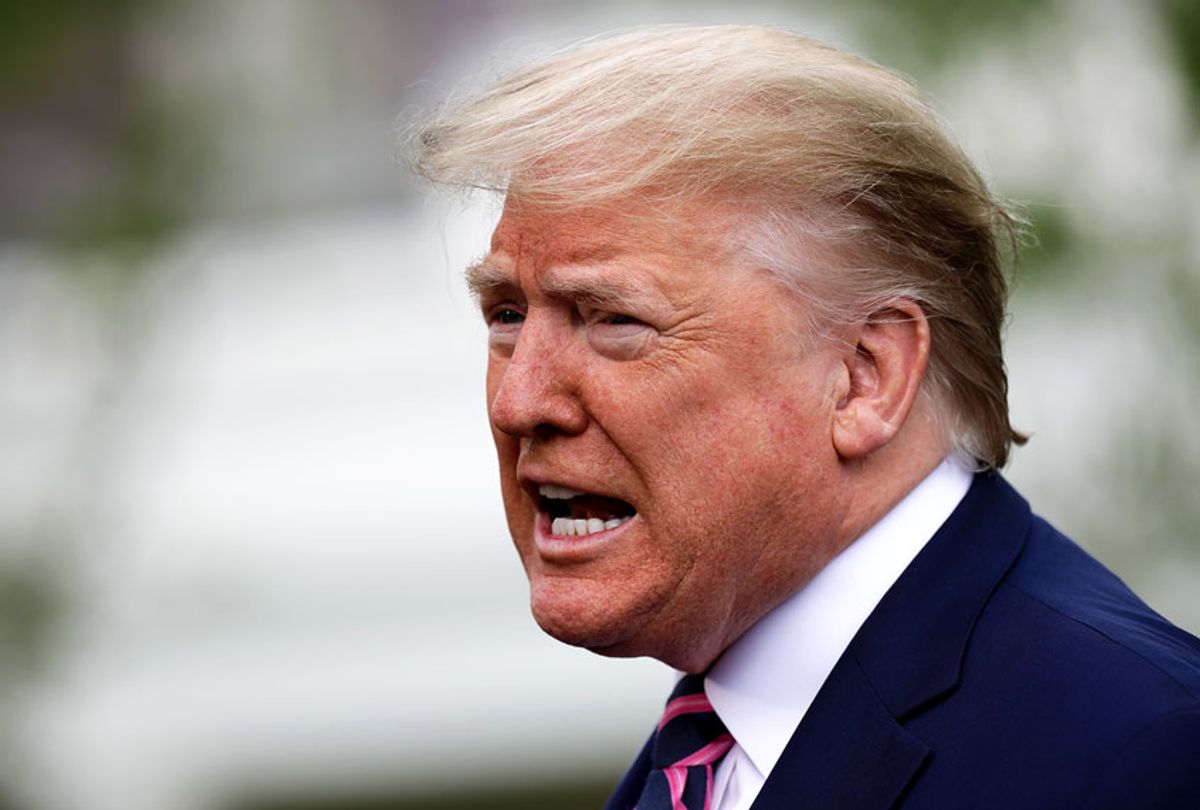Even if a second wave of coronavirus infections hits the U.S., the country will not shut down, President Donald Trump said Thursday.
Even though Trump admitted that there was a "distinct possibility" the nation would see a second wave of infections, he argued that it would not be necessary to lock down the country again while visiting a Ford plant in Michigan. The president's comments came as new data shows that delays in imposing restrictions by government officials the initial outbreak led to tens of thousands of preventable deaths.
"People say that's a very distinct possibility, it's standard and we're going to put out the fires," Trump said when asked if he was concerned about a second wave. "We're not going to close the country. We're going to put out the fires. There could be — whether it's an ember or a flame, we're going to put it out. But we're not closing our country."
Trump, of course, never locked down the country to begin with, leaving individual governors to impose restrictions in piecemeal fashion. All 50 states are now moving toward reopening in some form. Trump acknowledged earlier this month that it is "possible" more people will die as a result of reopening.
"You know, people are dying the other way, too. When you look at what's happened with drugs, it goes up. When you look at suicides — I mean, take a look at what's going on. People are losing their jobs," he told ABC News. "We have to bring it back — and that's what we're doing."
Trump's vow not to close the country again came a day after Dr. Anthony Fauci, the director of the National Institute for Allergy and Infectious Diseases, told The Washington Post there was "no doubt" there would be a second wave of infections.
"The virus is not going to disappear," he said. "It's a highly transmissible virus. At any given time, it's some place or another. As long as that's the case, there's a risk of resurgence."
Fauci said he expects new cases "could mount considerably in the fall," but many scientists believe the rush to reopen will result in an even earlier second wave. A model developed by the PolicyLab at Children's Hospital in Philadelphia projected a second wave of infections to hit the South over the next four weeks, impacting Alabama, Florida, Texas and other states.
"As communities reopen, we're starting to detect evidence of resurgence in cases in places that have overreached a bit," Dr. David Rubin, the director of the Policy Lab, told The Post.
"We're not reopening based on science," Dr. Thomas Frieden, the former director of the Centers for Disease Control and Prevention under President Barack Obama, told The New York Times. "We're reopening based on politics, ideology and public pressure. And I think it's going to end badly."
Some current CDC officials claimed that they have been "muzzled" by the Trump administration as it pushes to reopen.
The initial series of statewide lockdowns were imposed out of fear that the rising number of cases would overwhelm hospitals and result in rationed care. That was the case in hard-hit countries like Italy and Spain, where hospitals quickly ran out of personal protective equipment and ventilators. New York Gov. Andrew Cuomo, a Democrat who has faced criticism over his own delayed coronavirus response, said the lockdown prevented that worst-case scenario.
A more recent presentation prepared by the Department of Health and Human Services and the Federal Emergency Management Agency reviewed by The Post warned that the likely second wave "could be steep enough in some places to overwhelm ventilator capacity."
The presentation particularly warned of ventilator shortages that could hit Arizona, Colorado, Georgia and Tennessee. The problems may be exacerbated by a false sense of calm, experts warned.
"We're looking at potentially a month or two later that we're going to see the impact," former Baltimore health commissioner Leana Wen told the outlet. "You have not seen the impact of reopening yet. I think there's going to be a very significant lag."



Shares